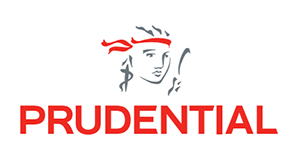INTRODUCTION
.
Although there are challenges to commercially viable investment in Sierra Leone, the country offers significant investment potential across a myriad of sectors. Whilst its strength is traditionally recognised as being in its mineral reserves, the country is rich in other natural resources, including agriculture and fisheries. Opportunities also exist in energy, infrastructure and tourism.
Having benefited from political stability since 2002, Sierra Leone’s economy was outperforming both West African and pan-African averages in the four years before the country was struck by an outbreak of Ebola. Since Sierra Leone was declared Ebola-free in November 2015, there has been a sustained policy focus on encouraging FDI (in particular, to displace foreign investor “aversion behaviour” associated with the crisis) with the goal of returning to the previous growth trajectory.
.
Although there are challenges to commercially viable investment in Sierra Leone, the country offers significant investment potential across a myriad of sectors. Whilst its strength is traditionally recognised as being in its mineral reserves, the country is rich in other natural resources, including agriculture and fisheries. Opportunities also exist in energy, infrastructure and tourism.
Sierra Leone has a strategically advantageous location on the Atlantic coast of Africa, bordered by Liberia and Guinea, with one of the largest natural harbours in the world. Freetown’s port lies almost equidistant between Brazil and major northern European ports, such as Rotterdam and Hamburg. This gives the port, and Sierra Leone, significant commercial advantages.
This Guide provides a practical and realistic approach to investment in Sierra Leone, addressing critical background factors affecting both investment choices and the likelihood of success, including governance, the rule of law, business and human rights, dispute resolution, and finance and banking. The Guide also addressed are the regulatory and legal structures, including those relating to foreign investments, and key pieces of legislation governing doing business in Sierra Leone.
As well as considering the legal and institutional frameworks which already exist or are being put in place to support Sierra Leone’s development as an investor-friendly jurisdiction, the Guide also covers the current plans and policies of the GoSL to address institutional or regulatory impediments to economic growth.
The opportunities and obstacles, as well as features of the legislative, regulatory and institutional framework, are considered in the context of Sierra Leone’s key sectors, including energy, natural resources, infrastructure, tourism, and agriculture and fisheries.
We hope you find this Investor Guide useful.



